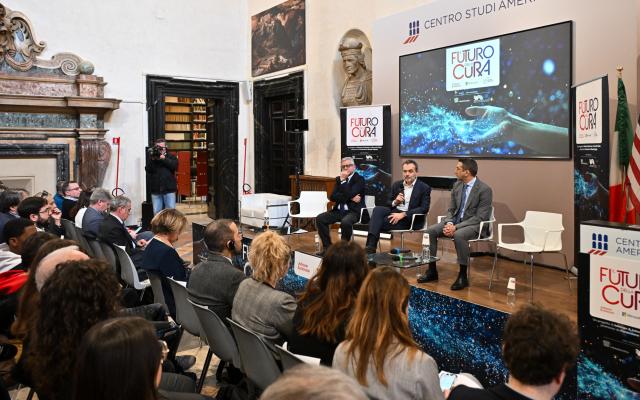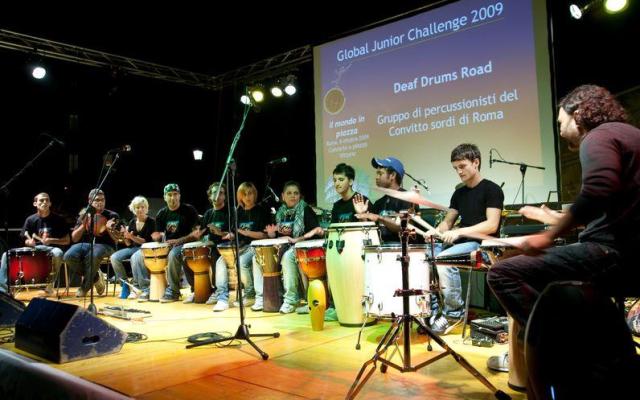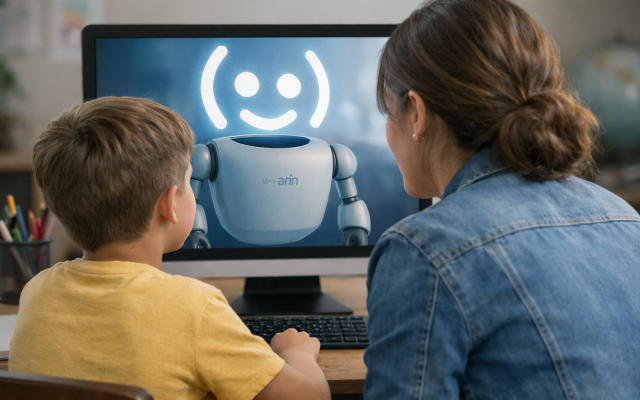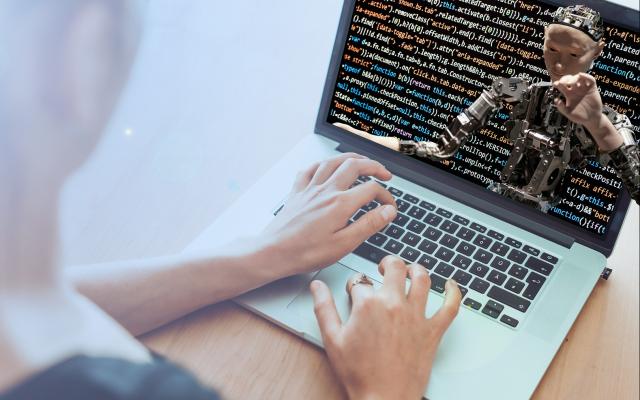Introducing AI to schools responsibly with Ital.IA Lab.
The Liceo scientifico Galileo Galilei in Potenza is one of the educational hubs of Ital.IA Lab, the project promoted with Microsoft Italia to develop synchronous and asynchronous training programmes for young men and women and individuals seeking employment, with a particular focus on women and disadvantaged areas. Let’s take a look at the impact of the educational programme on didactic activities and the life of the educational community.
PROFESSOR
Carmelina Frammartino, professor and digital tour guide, shares her reflections on the impact of AI on the education of students.
How did your school hub react to the opportunity to participate in Project Ital.IA Lab?
Our school hub welcomed the opportunity to participate in Project Ital.IA Lab with enthusiasm. Indeed, the project enriched not only the students, but also all the faculty who participated as orientation tutors.
What was the reaction of the faculty to GenAI training?
The opportunity to learn more about GenAI was welcomed with a positive spirit. Although some professors already use AI tools, we are well aware of the importance of continuing to experiment and discover the full potential of this revolutionary technology.
How did students react to the introduction of GenAI tools?
Digital language is becoming the students’ vernacular. Introducing GenAI tools into didactic activities raised their interest and brought them even closer to a connected, digital reality.
How can AI be integrated into a school’s multidisciplinary context?
School is a fertile ground for the opportunities provided by AI and is perfect for a multidisciplinary didactic approach. A clear example of this was the production of a video in which famous (historical and not) personalities interacted in a debate, stimulating the students to learn about philosophy, history, and helping them to reflect on political issues. We’ve also started work on a cartoon version of the Divine Comedy and the first two cantos are ready!
Did student change their preferences in terms of AI tools?
Before the project, students mainly used ChatGPT. Now, they have discovered that Copilot provides a greater range of tools and is more reliable in general.
COACH
Pasquale Macchia, a coach with a great interest in cybersecurity, guided the faculty and students at the Liceo Galileo to the discovery of GenAI.
Pasquale, can you tell us about your experience in the fields of cybersecurity and computer science?
I am studying computer science at the University of Potenza and notwithstanding the fact that I’m only a second-year student, I am already planning to transfer to Rome to have greater professional opportunities. In my city, unfortunately, there are not many opportunities in cybersecurity. However, together with my association, I have had the honour of opening the first fab lab in Potenza.
What was the students’ reaction to the AI tools you introduced them to?
The students were incredibly curious about the potential of this new technology. As a matter of fact, the professors were interested too, but whereas the students could grasp the potential of these tools, the professors often needed more information.
What issues did you address during the course?
We reflect on key issues such as data protection and the ethics of AI. Many students seemed worried that AI could reduce the jobs available to the new generations.
Do you believe this scenario could be true?
AI provides us with important challenges, not only as students or workers, but as human beings. We are synthesizing part of our abilities into a digital tool. So, I believe that the jobs of the future will have to leverage those abilities that cannot be digitalised such as emotional intelligence, the ability to connect to others and involve them in our lives. These are fundamental abilities that machines cannot replicate. Clearly, some jobs wil be lost, but at present I think this is a premature worry. Let’s say that until general artificial intelligence is produced, we will be ok, maybe …
How can AI be integrated into didactic activities?
The only way to conscientiously integrate AI into didactics is to consider it as another student. And understand what the differences are. Schools should educate students that differ vastly from the machine. And to do so, the faculty must have a good understanding of the issue, both from a technical and ethical-philosophical point of view. Otherwise, we risk being overcome by AI as educators, too!
STUDENT
Last, but not least, here are the opinions of a student, Alessandro Zuddas.
Alessandro participated actively in all the sessions. We asked him a few questions to find out about the opinion of students. Having a passion for computer science and science in general for a long time, Alessandro found that the course provided him with the opportunity to fully explore generative artificial intelligence, a topic he had often heard about without ever having the opportunity to delve deeper. “The course helped me to understand the potential of this new technology. I understood how it helps us and can help us. I was very surprised to discover the many things it can do. I am thinking, for example, of how it could be used in autonomous driving, helping us to increase levels of road safety. It's revolutionary technology."
Notwithstanding his enthusiasm, Alessandro expressed a few concerns: "the thing that scares me most about AI is the incorrect use that could be made of it. I fear that AI could surpass our capabilities, enslave us and make us incapable of thinking."
However, he remains optimistic about the potential of AI: "the best thing that could happen in my opinion is that AI become a springboard to help us revolutionize the world, in a positive way."




